In today’s digital age, email marketing remains a cornerstone of effective customer engagement and business growth. As businesses seek to optimize their marketing strategies, the choice between email marketing platforms becomes crucial. Two prominent contenders in this space are Mailchimp and iContact, each offering unique features and capabilities to cater to diverse business needs. Additionally, innovative platforms like Prism Reach are emerging, pushing the boundaries of personalized email marketing. This comprehensive comparison delves into the strengths, limitations, and unique offerings of Mailchimp and iContact, providing valuable insights to help businesses make informed decisions about their email marketing tools.
Key Facts
- Mailchimp offers an extensive feature set, including advanced automation and deep integrations, making it suitable for businesses of all sizes.
- iContact focuses on simplicity and affordability, catering primarily to small businesses and organizations with basic email marketing needs.
- Both platforms provide essential email marketing tools, but Mailchimp edges out in terms of scalability and advanced functionalities.
Comparing Giants: Mailchimp vs iContact in the Email Marketing Arena
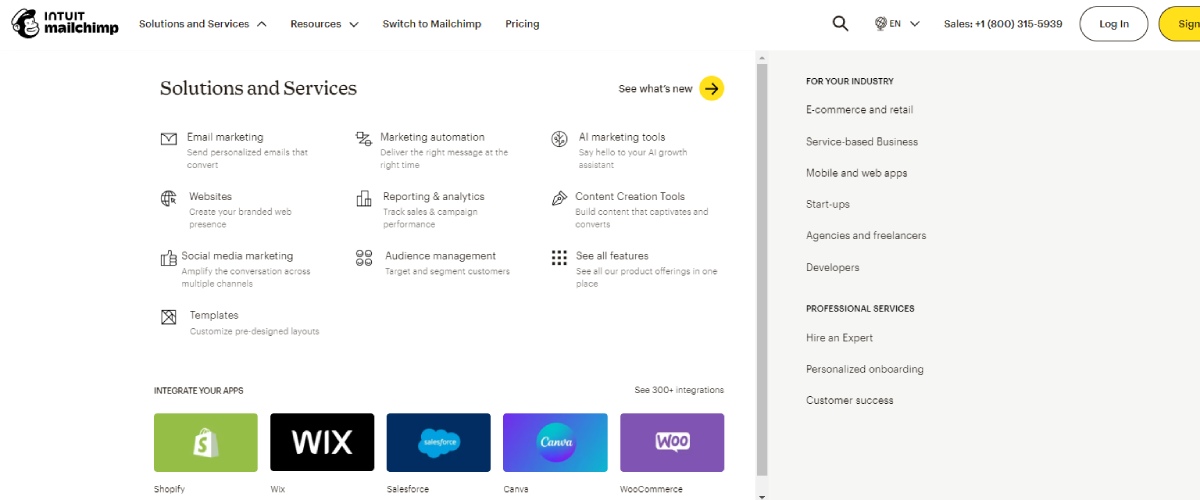
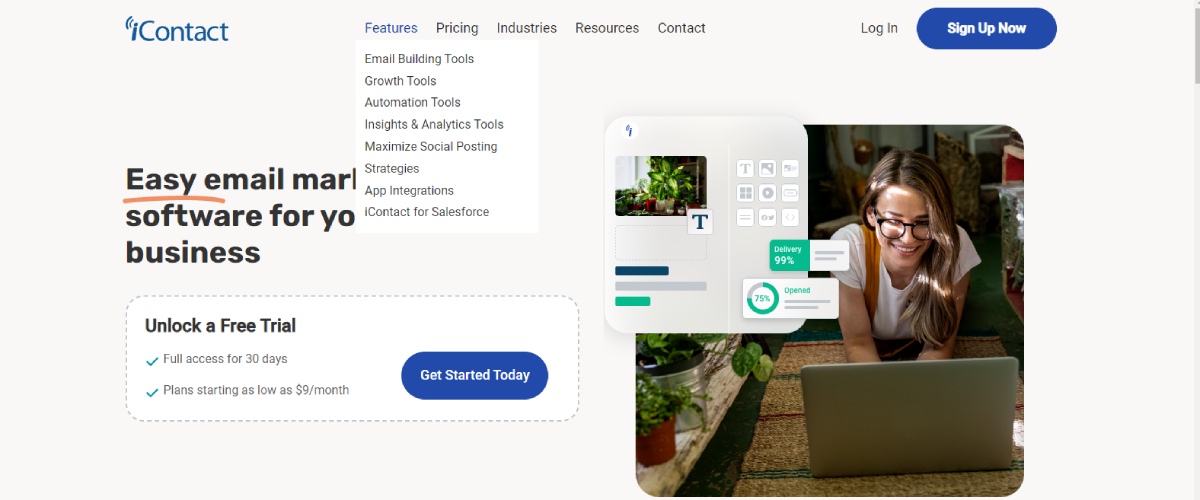
Platform Overview and Target Audience
Mailchimp and iContact represent two distinct approaches to email marketing software. Mailchimp is renowned for its comprehensive feature set and scalability, making it suitable for businesses of all sizes. Its robust platform caters to a wide range of needs, from small startups to large enterprises. In contrast, iContact positions itself as a more straightforward, budget-friendly option, making it particularly appealing to small businesses and organizations with simpler email marketing requirements.
This distinction in their target audiences reflects in their feature offerings, pricing structures, and overall user experience. While Mailchimp aims to provide a one-size-fits-all solution with room for growth, iContact focuses on delivering essential features in a more accessible package for those with basic needs or limited resources.
Email Builder and Template Customization
The email builder is a crucial component of any email marketing platform, and both Mailchimp and iContact offer drag-and-drop editors. Mailchimp’s email builder stands out as a particularly strong feature, providing users with an intuitive interface and access to over 100 customizable templates. This extensive variety allows for highly personalized and branded email campaigns, catering to diverse design needs.
Users have praised Mailchimp’s template options, with one noting, “Mailchimp’s template variety and customization options have been a game-changer for our marketing team. We can create professional-looking emails in minutes.”
In contrast, iContact‘s drag-and-drop editor, while user-friendly, offers fewer pre-built options and customization features compared to Mailchimp. However, iContact has innovated by incorporating AI-assisted content generation, which can be particularly beneficial for users who struggle with content creation or are short on time.
Hidden Gem #1: Utilize iContact’s Industry-Specific Templates
Many users overlook iContact’s tailored templates designed for specific industries. Leveraging these can enhance engagement by ensuring that the messaging and design resonate more closely with the target audience’s expectations and needs. This feature is especially valuable for businesses looking to maintain a professional and relevant appearance without extensive design resources.
Automation and Segmentation Capabilities
In the realm of automation and segmentation, Mailchimp demonstrates superior capabilities. It offers up to five levels of segmentation, allowing for highly granular targeting of subscribers based on various criteria such as behavior, demographics, and engagement history.
Mailchimp’s Advanced Segmentation enables real-time syncing and behavioral targeting. This means you can create highly personalized campaigns based on user interactions, significantly improving open and click-through rates.
Implement A/B Testing in Mailchimp
Although many users are aware of A/B testing, they often underutilize it. Regularly testing different subject lines, content formats, and send times can uncover valuable insights that optimize campaign performance over time. Mailchimp’s A/B testing tools are robust, allowing marketers to make data-driven decisions to enhance their email strategies.
In contrast, iContact provides basic automation and segmentation features that, while functional, lack the depth and complexity offered by Mailchimp. For small businesses with straightforward email marketing needs, iContact’s simpler approach to automation and segmentation may be sufficient and potentially less overwhelming to manage.
Pricing Structures and Plans
Pricing is a critical factor in choosing an email marketing platform, and both Mailchimp and iContact offer distinct pricing structures.
Mailchimp provides a generous free plan that allows users to manage up to 500 contacts, making it an attractive option for startups and small businesses just beginning their email marketing journey. This free tier enables new users to explore Mailchimp’s features without financial commitment.
For those requiring more advanced features or larger contact lists, Mailchimp’s paid plans start at $13 per month, with additional tiers available for larger enterprises. These tiered options allow businesses to scale their email marketing efforts as they grow.
iContact, while not offering a free plan, is known for its budget-friendly pricing structure. This approach can be particularly appealing for small businesses operating on tight budgets, providing access to essential email marketing tools without the higher costs associated with more feature-rich platforms.
- Mailchimp Pricing:
- Free Plan: Up to 500 contacts
- Essentials: Starting at $13/month
- Standard: Advanced features for growing businesses
- Premium: Comprehensive tools for large enterprises
- iContact Pricing:
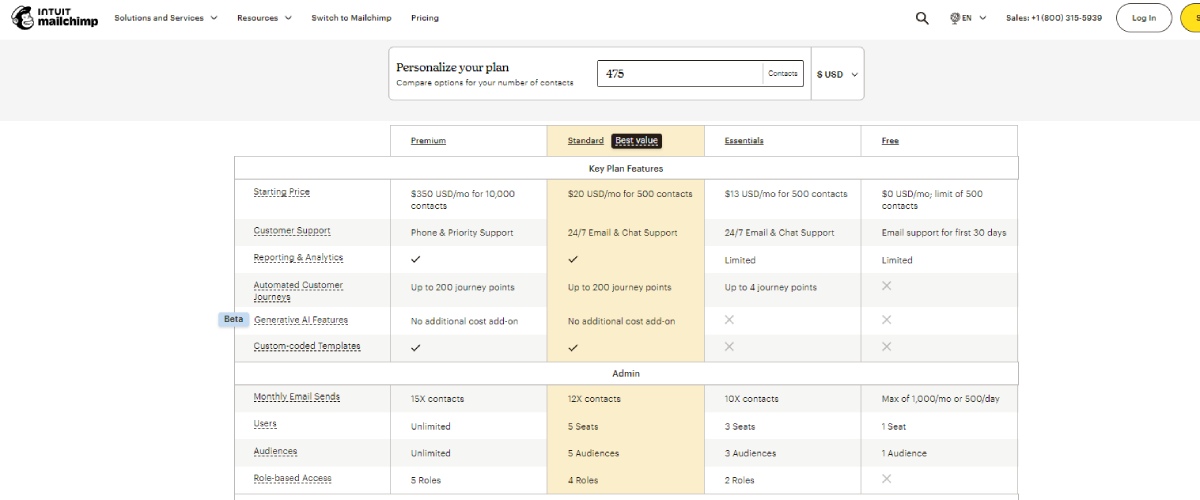
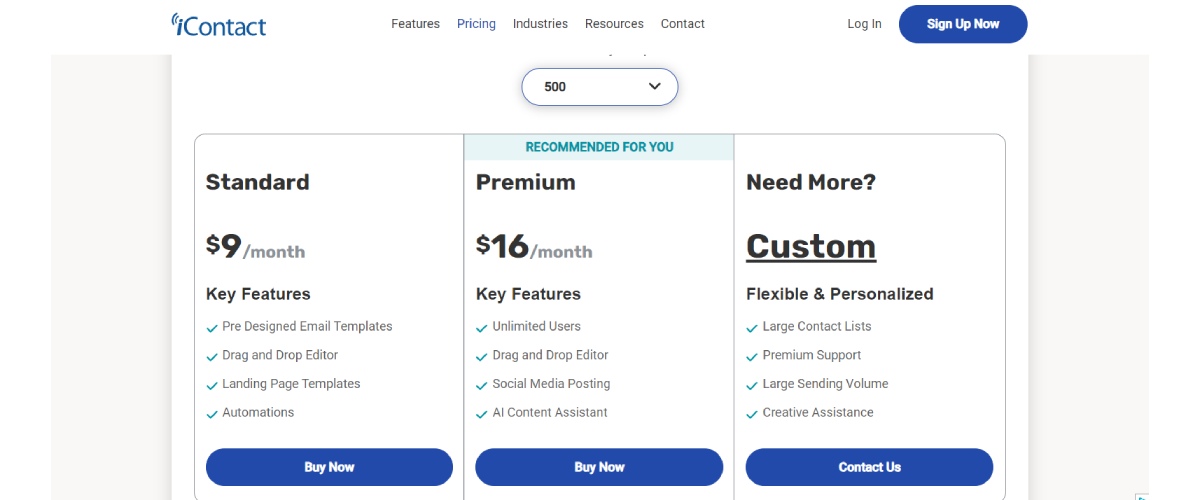
Integration Capabilities and Scalability
When it comes to integrations and scalability, Mailchimp demonstrates a significant advantage. With over 200 integrations available, including deep connections with major CRM and e-commerce platforms, Mailchimp provides a versatile ecosystem that can adapt to various business needs.
Combine Mailchimp with E-commerce Platforms
Mailchimp’s robust integrations with e-commerce platforms allow for more effective targeting based on purchase behaviors. This integration can drive sales by sending personalized follow-up emails to customers based on their shopping history. Whether you’re using Shopify, WooCommerce, or Magento, Mailchimp seamlessly connects to enhance your marketing strategies.
Mailchimp’s scalability is particularly beneficial for growing businesses that anticipate expanding their marketing operations over time. Its ability to handle large contact lists and complex campaigns makes it a future-proof choice for businesses aiming for long-term growth.
In contrast, iContact offers integrations with popular platforms like Salesforce and Shopify, providing essential connections for many users. However, it lacks the extensive integration options and real-time syncing capabilities that Mailchimp offers. This limitation may impact businesses looking for more advanced or specialized integrations to support their marketing strategies.
Customer Support and Resources
Both Mailchimp and iContact prioritize customer support, albeit with different approaches. Mailchimp offers comprehensive 24/7 customer support via multiple channels, ensuring that users can get help whenever they need it. This round-the-clock availability is complemented by a robust community forum where users can share experiences and solutions. Additionally, Mailchimp provides extensive self-help resources, including tutorials, guides, and FAQs, empowering users to find answers independently.
iContact takes a more traditional approach to customer support, providing phone and email support during extended business hours. While this may be sufficient for many users, it lacks the 24/7 availability offered by Mailchimp. iContact’s support structure is designed to meet the needs of its primary target audience – small businesses and organizations that may not require constant support. Both platforms strive to ensure users can effectively utilize their services, but with different levels of accessibility and depth in their support offerings.
Innovative Solutions by Prism Reach
While Mailchimp and iContact offer solid email marketing solutions, innovative platforms like Prism Reach are pushing the boundaries of what’s possible in personalized email marketing. Prism Reach leverages advanced AI technology to offer deep personalization that goes beyond traditional segmentation methods.
Upgrade Your Email Marketing with AI Personalization!
Key Benefits of Prism Reach:
- Increased Engagement: Publishers report up to 40% higher engagement rates due to the personalized nature of the content.
- Higher Revenue: Tailored advertising and efficient content targeting lead to higher monetization rates for published newsletters.
- Improved Productivity: Automation and AI-driven insights significantly reduce the time required to create and manage campaigns.
Prism Reach’s core functionality revolves around its proprietary AI technology, which clusters website content and social media posts into relevant categories. This AI uses a variety of data points to create detailed user avatars, enabling personalized newsletter content that incorporates factors such as location, engagement history, and predicted interests. The system’s ability to analyze vast amounts of data allows for highly targeted marketing strategies.
Hidden Gem #2: Use Mailchimp’s Customer Journey Builder
Mailchimp’s Customer Journey Builder is a powerful feature that allows marketers to visualize and automate customer interactions across multiple touchpoints. By mapping out the customer journey, businesses can create more effective marketing strategies that nurture leads through the sales funnel. This feature enhances the ability to deliver timely and relevant content, improving overall campaign effectiveness.
Hidden Gem #3: Leverage iContact’s Focus on Deliverability
iContact has a dedicated team focused on ensuring high deliverability rates. By utilizing their tools and best practices, users can help ensure their emails reach inboxes instead of being filtered as spam. High deliverability is crucial for maintaining engagement and achieving desired marketing outcomes.
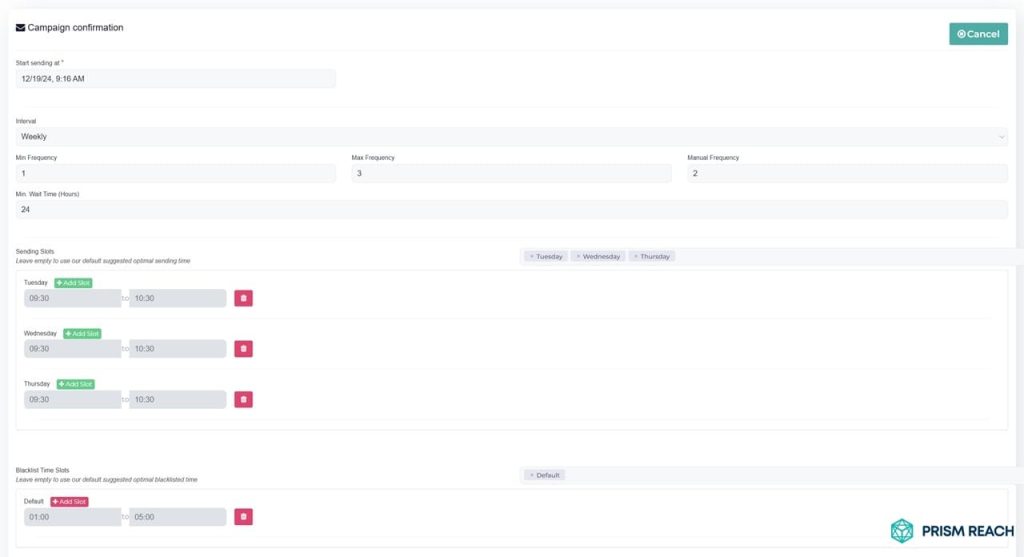
Hidden Gem #4: Explore iContact’s Advanced Reporting Features
While many focus on basic metrics, iContact provides nuanced insights into campaign performance. Utilizing these advanced reporting tools can help identify not just who is opening emails but how they are engaging with the content. This deeper understanding enables more informed decisions to enhance future campaigns.
Hidden Gem #5: Employ Social Media Sharing Tools in iContact
iContact’s Social Share tool allows users to add social media sharing buttons directly into emails. This feature can extend the reach of email campaigns by encouraging recipients to share content across their networks, increasing visibility and engagement organically.
Innovative Features and Future Prospects
Prism Reach stands out with its AI-powered personalization capabilities. By transforming how publishers and content creators engage with their audiences, Prism Reach uses sophisticated AI algorithms to customize every aspect of newsletters based on subscriber behavior and preferences. This level of personalization not only enhances user experience but also drives better marketing outcomes.
Looking ahead, Prism Reach aims to expand its technology into the eCommerce sector and explore new ways to leverage AI for broader marketing applications. The company is committed to continuous improvement of its AI algorithms, ensuring that its solutions remain at the cutting edge of technology and marketing innovation.
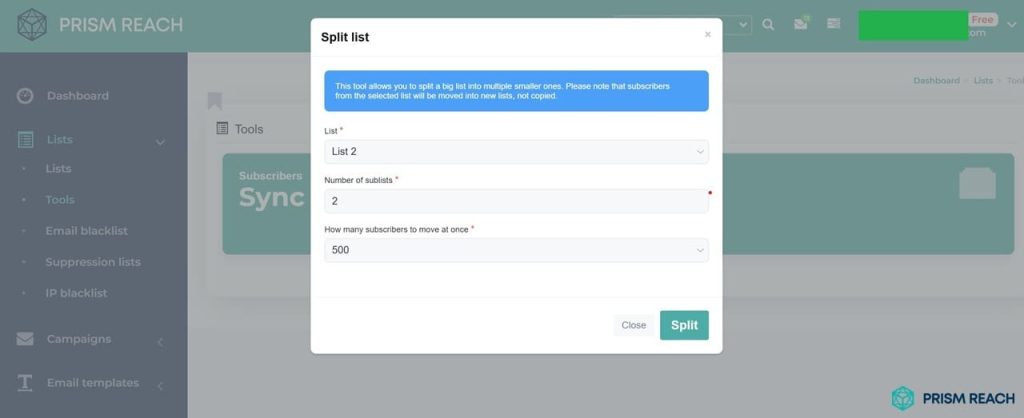
Conclusion
In the Mailchimp vs iContact comparison, Mailchimp emerges as the more comprehensive and scalable solution, ideal for businesses looking for advanced features and room to grow. Its extensive integration options, powerful automation capabilities, and robust analytics make it a versatile choice for a wide range of businesses.
iContact, with its focus on simplicity and affordability, presents a solid option for small businesses or organizations with basic email marketing needs. Its user-friendly interface and budget-friendly pricing make it accessible to those just starting with email marketing or operating with limited resources.
However, as the email marketing landscape evolves, innovative solutions like Prism Reach highlight the potential for AI-driven personalization to revolutionize how businesses engage with their audiences through email. For those seeking cutting-edge personalization and efficiency in their email marketing efforts, exploring such AI-powered alternatives may offer significant advantages over traditional platforms.
Ultimately, the choice between Mailchimp, iContact, or newer alternatives like Prism Reach depends on your specific business needs, budget, and long-term marketing goals. By carefully considering the strengths and limitations of each platform, you can select the tool that best aligns with your email marketing strategy and helps you build stronger connections with your audience.
Sources
- One Hour Professor. (n.d.). Mailchimp vs iContact comparison.
- Hyperise. (n.d.). Compare iContact vs Mailchimp.
- WinSavvy. (n.d.). Mailchimp vs iContact: The Best Email Marketing Tool.